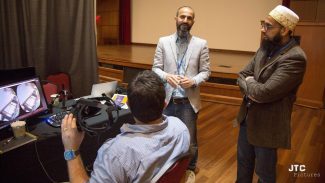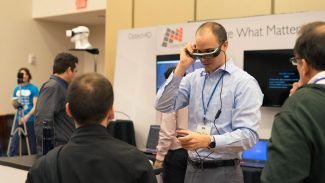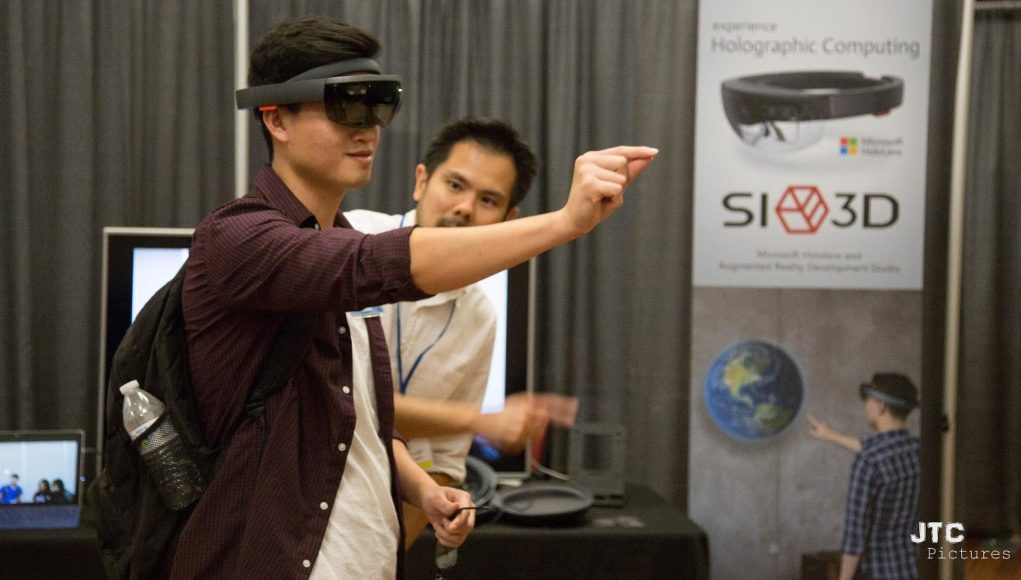The Immersive Technology Conference (ITC), soon to be hosted at the University of Houston on November 6th & 7th, is an event built around a paradox. Its focus—VR and AR in business and industry—is both decades old and still in its infancy. Inexpensive, high-quality consumer VR headsets are rapidly consigning the room-sized CAVEs and expensive, custom headsets of decades past to the dustbin of history, and with them, the assumed limits of what VR and AR can accomplish.

Houston, Texas, a hub for industries ranging from Medicine to Oil & Gas to Aerospace, has been ground-zero for many of the conversations reimagining the scope of what VR and AR can accomplish.
“At every HoustonVR meetup, two or three attendees would pull us aside to ask how they could take advantage of Rifts or Vives or Hololenses in their industries,” recalls William Golden, executive director of the ITC. “Oil & Gas, Architecture, Education, Medicine, Aerospace—they were all looking for new ways to take advantage of immersive technology. It became obvious that these conversations needed to happen on a larger scale, with content providers and hardware designers in the same room as industry planners and decision-makers. That’s how ITC was born.”
The first ITC, held in 2016, featured 21 speakers and 13 exhibitors, including engineers from NASA, programmers from Microsoft, and doctors from the Memorial Hermann Medical System. The conference’s speakers represented knowledge of applied VR and AR spanning 9 industries, and it drew attendees from 7 countries.

This year’s ITC includes an additional focus: “The number of VR and AR startups in Texas looking for funding made connecting them with investors a priority for us as well,” Golden says. “So we’re bringing in Tipatat Chennavasin of The Virtual Reality Fund as a keynote speaker; we’re hosting a panel of investors to discuss the challenges and opportunities for VR and AR startups; and we’re facilitating one-on-one meetings between investors and startups attending the conference.”
While last year’s conference drew C-level Executives and VIPs from a range of industries, it attracted attendees from beyond the boardroom as well. “People working at every level of these industries have attended to learn, and they often learn the most from other industries. The cross-pollination has been amazing to watch,” Golden noted. “And professors and students are doing a lot of the best research in VR and AR, so we have academic pricing to attract them to the conversation as well.”
The Immersive Technology Conference runs from November 6th-7th at the University of Houston, in Houston, Texas. Exhibitors include industry-focused VR/AR companies like ITI VR, which has developed a detailed VR crane operator training simulation; Core Simulations, which is using immersive technology and gamification to improve physical and occupational therapy; and Level Up Camp, an innovation camp where young minds get hands on learning with web, app, and VR/AR technologies.
Road to VR is a proud media partner of the 2017 Immersive Technology Conference.







